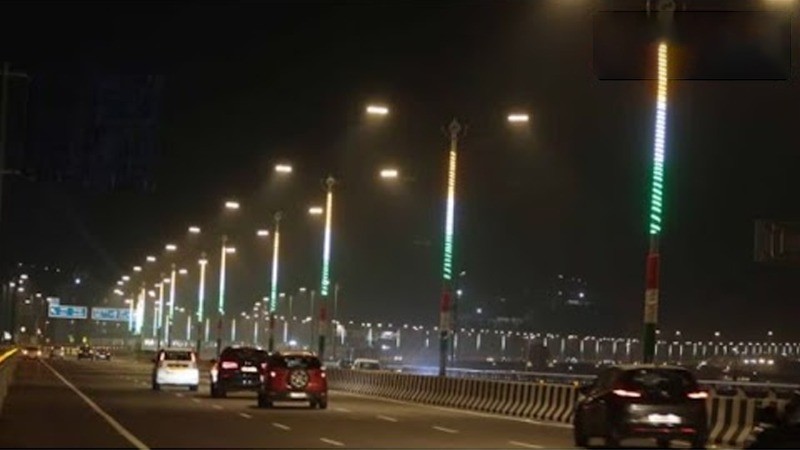
The Maharashtra government has declared a toll exemption for light motor vehicles at five key entry points into Mumbai, effective from midnight. This decision was announced during a cabinet meeting on October 14, as stated by Chief Minister Eknath Shinde.
The toll booths impacted by this waiver are located at Vashi, Lal Bahadur Shastri Road in Mulund, Mulund Eastern Express Highway, Dahisar Western Express Highway, and Airoli. Previously, the toll for light motor vehicles was set at Rs 45.
This exemption is expected to benefit personal and other light vehicles, which make up nearly 80% of the approximately 3.5 lakh vehicles that enter the city daily. Reports suggest that around 2.8 lakh vehicles will directly benefit from this toll waiver.
A senior official from the Maharashtra State Road Development Corporation (MSRDC) estimated that the state could face a daily revenue loss of about Rs 50 lakh due to this exemption. While light motor vehicles represent the majority of the traffic, they contribute less to toll revenue compared to heavy vehicles.
On average, 2.8 lakh vehicles are projected to benefit from the new toll exemption, according to the MSRDC. An official noted that 3.6 lakh vehicles typically pass through the five toll booths daily, with 2.8 lakh being light motor vehicles.
Although transporters' associations welcomed the government's move, they expressed concerns about the lack of support for commercial vehicle operators. Bal Malkit Singh, chairman of the All India Motor Transport Congress's core committee, criticized the government for treating the transport sector unfairly. He urged for the toll waiver to be extended to commercial vehicles and reiterated calls to abolish border checkposts.
This announcement comes in the lead-up to the Maharashtra Assembly elections and addresses a long-standing demand among commuters. Raj Thackeray, leader of the Maharashtra Navnirman Sena (MNS), expressed support for the decision, noting that it represents a victory for the people. He cautioned, however, that it should not merely be seen as an election tactic.
Toll collection at these entry points began in 2002, with a contract awarded to MEP Infrastructure Pvt Ltd in 2010, set to expire in 2026. To mitigate the revenue loss from this exemption, the government will compensate the concessionaire until the contract ends. Other entry points will cease toll collection by 2027, although Vashi may continue to charge heavy vehicles due to ongoing infrastructure projects.
Delhi Govt To Impose Congestion Tax to Curb Peak-Hour Traffic
How Traffic Restrictions in Mumbai and Noida Will Impact Dussehra 2024 Celebrations